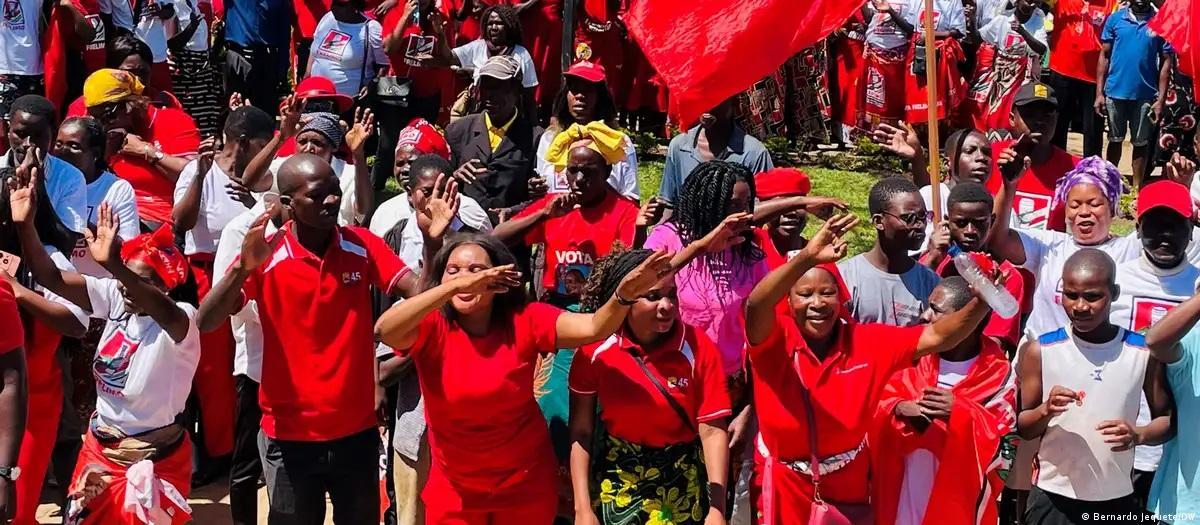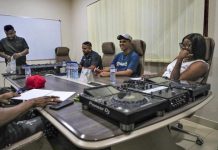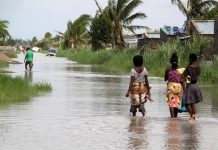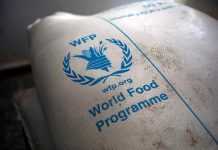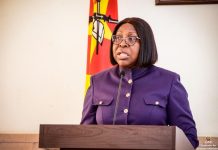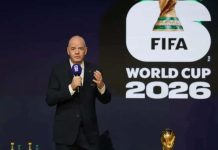Africa-Press – Mozambique. Academic João Mosca believes that, faced with the wave of post-electoral protests and accusations of “mega-fraud” in local authorities on October 11, some wings of the Front for the Liberation of Mozambique (Frelimo) are not speaking out on the matter for fear of losing their benefits.
Even the President of the Republic, Filipe Nyusi, is silent, even about the police violence against citizens who took to the streets to protest against voting illegalities.
DW Africa: Was President Filipe Nyusi expected to speak in the face of this post-election crisis?
João Mosca (JM): Normally yes, one would expect a speech from him, but anyone who knows Mozambique and Frelimo knows that this silence ends up entering into the normal behaviour of political power in the face of crisis situations.
This is not just the case now. This party has had this type of action strategy in crisis situations for decades, so it is perfectly natural.
On the other hand, the president is in a critical situation not only within Frelimo, due to the great protest from his comrades and the loss of his credibility and support within the party that supports him. The general elections next year are also being taken into consideration. Frelimo and Filipe Nyusi are strongly weakened by this electoral situation. Naturally, they want to win elections again, win fraudulently always – this is also historic in Mozambique.
DW Africa: It is often said that “he who remains silent, consents”. Is this an adage that can be applied to Frelimo’s so-called “old guard” in relation to the current post-electoral crisis?
JM: Currently, inside Frelimo, there are three or four very powerful groups contesting the current governance. But watch out: Frelimo hardly dismembers itself, hardly disarticulates itself or creates ruptures, because it has something much more important to preserve, which is the business of the Frelimo elites – million-dollar businesses without any technical, material or business support base, living off income from internal and external capital, living off situations of direct corruption and participation in companies. This minority Frelimo elite cannot be dismembered, because the big economic interests could also enter into a situation of crisis and internecine fights.
These fights exist, but they are silent, and never bring about violent ruptures within Frelimo. Political power and business are two bases that are perfectly articulated and do not allow Frelimo to dismember itself internally.
DW Africa: The country has never experienced such a huge protest movement in an electoral context as the one it is experiencing now. Do you think Frelimo learned any lessons from this entire crisis?
JM: The first speeches that were made after the final results were known, whether by the secretary general [of Frelimo, Roque Silva], or the minister of Foreign Affairs [Verónica Macamo], were absolutely overbearing.
The Minister of Foreign Affairs, who is absolutely inefficient and incompetent, said that Frelimo is already used to post-election challenges and that this would pass, as Frelimo won and deserved this victory due to its good governance.
This is a speech that goes absolutely against the current of the political situation, as it is very easy to comprehend that Frelimo did not understand what it should do. If there are internal voices, it is one or two, and the rest remain silent because they fear that their statements will affect their personal fortunes.
For More News And Analysis About Mozambique Follow Africa-Press

